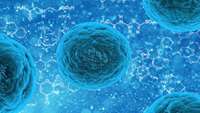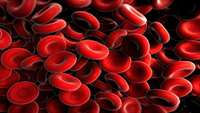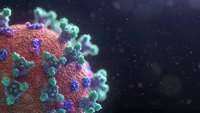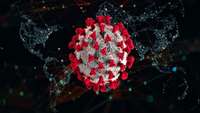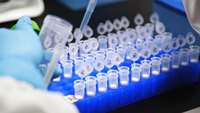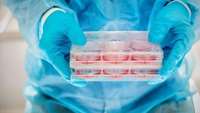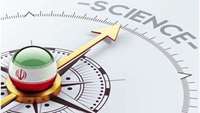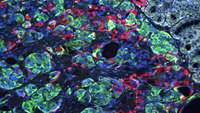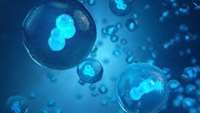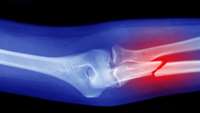Researchers uncover cellular mechanism involved in Krabbe disease
A group of researchers at the University at Buffalo have published a paper that clarifies certain cellular mechanisms that could lead to improved outcomes in patients with globoid cell leukodystrophy, commonly known as Krabbe disease.
Making blood on demand: How much have we come
The reconstitution of the blood system in humans holds great therapeutic potential to treat many disorders, like blood cancers, sickle-cell anemia and others. Successful reconstitution requires the transplantation and engraftment of hematopoietic (or blood) stem cells (HSCs), which after reaching their niche, start producing all types of blood cells, including platelets, white and red blood cells.
SARS-CoV-2 infects cells in a human intestinal organoid model
Researchers from the Hubrecht Institute in Utrecht, Erasmus MC University Medical Center Rotterdam, and Maastricht University in the Netherlands have found that the coronavirus SARS-CoV-2, which causes COVID-19, can infect cells of the intestine and multiply there.
COVID-19 and the role of tissue engineering
Tissue engineering has a unique set of tools and technologies for developing preventive strategies, diagnostics, and treatments that can play an important role during the ongoing COVID-19 pandemic. Three key areas pioneered by tissue engineers that could be applied to the current COVID-19 crisis and to future viral outbreaks are highlighted in an article published in Tissue Engineering, Part A.
China's first COVID-19 mRNA vaccine approved for clinical trials
ARCoV, a novel coronavirus Messenger RNA (mRNA) vaccine candidate jointly developed by the People's Liberation Army (PLA) Academy of Military Sciences, Suzhou Abogen Biosciences and Walvax Biotechnology Co., Ltd, was officially approved by the National Medical Products Administration of clinical trial on June 19, according to CCTV's report.
Stem Cells in Iran; Tenth in the World- The First Rank in the Islamic Countries
Stem cells and regenerative medicine are among the novel areas in the world, and many efforts have been made to improve the field. New phenomena have occurred in the country by the efforts of activists in the innovation and technology ecosystem along with global attempts. Iran has advanced significantly in this field and has dedicated efforts to reaching the tenth rank in the world.
Iran ranks 15th in the world in the production of scientific articles/The End of the Superiority of the United States and the First Rank of China
According to the latest data of the Scopus Database in 2019 in Iran, the number of scientific article publication of Iran improved by one step. Today, Iran is ranked 15th in the world, which has been the highest rank of Iran to date. Overall, 67744 articles have been produced in 2019, showing a 13% growth, compared to 2018.
Diabetes reversed in mice with genetically edited stem cells derived from patients
Using induced pluripotent stem cells produced from the skin of a patient with a rare, genetic form of insulin-dependent diabetes called Wolfram syndrome, researchers transformed the human stem cells into insulin-producing cells and used the gene-editing tool CRISPR-Cas9 to correct a genetic defect that had caused the syndrome. They then implanted the cells into lab mice and cured the unrelenting diabetes in those mice.
Neurodevelopment team locates a gene that supports control puberty and human reproduction
Thousands of Americans suffer from the delay or non-appearance of puberty. While the underlying cause is failure in the correct action of the hypothalamic hormone GnRH, the precise genetic causes have not been fully understood.
After a bone injury, shape-shifting cells attack to the rescue
Conventional thinking is that bone regeneration is left to a small number of mighty cells called skeletal stem cells, which reside within larger groups of bone marrow stromal cells.


